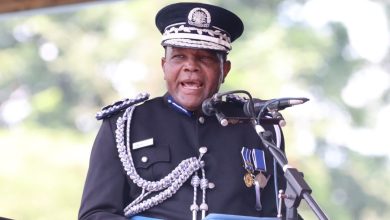Malawians pay tribute to author Ngugi wa Thiong’o
Malawians have joined the global community in paying tribute to Kenyan-bornglobal literature icon Ngugi wa Thiong’o who died on Wednesday night at the age of 87.
Many scholars of literature have saluted him for his contribution towards African renaissance.

Ngugi wa Thiong’o, born on January 5 1938, in Limuru, Kenya, is a prominent writer and academic. He is known for his influential works, including ‘Weep Not, Child’, which was the first major novel in English by an East African.
Ngugi later adopted the name Ngugi wa Thiong’o, changing it from his birth name, James Ngugi. He was a distinguished Professor of English and Comparative Literature at the University of California, Irvine in the United States of America.
Throughout his career, he has been an advocate for social justice and has used his writing to address issues of colonialism and cultural identity.
Reflecting on the fallen literature guru’s, Mzuzu University English Language lecturer Chimwemwe Kamanga, in his social media post, said he will personally forever be grateful to the author for his contribution in making him understand African literature and the concept of deconolising the mind.
“Over the years, the concept of deconolising the mind, which was hatched and popularised by Ngugi wa Thiong’o has gained some currency and it is applied across fields of academic study and life discourse in general within the framework of African renaissance,” he said.
Malawi Union of Academic & Non fiction Authors president Richard Muphuwa said Ngugi’s biggest attribute was his ability to bring his characters to life.
He said: “What a way to bring balance between the weight of religion and culture through strokes of pen.
“He adeptly highlighted themes on the legacy of colonialism, traditionalism, cultural nationalism and the role of intellectuals in the post-colonial era.”
Malawian literature guru Ken Lipenga, PhD, had all praises for Ngugi.
He said: “On literature, I’ll compare Ngugi wa Thiong’o with the Senegalese film-maker Sembene Ousmane. They both sought to use art as a weapon, a tool for social and political change. Ngugi did this by using his novels, plays, and essays to raise awareness about injustice and inspire resistance. He believed that literature could be a catalyst for social transformation
“Ngugi could be said to belong to the school of Noam Chomsky. Like the great American linguist, Ngugi saw language as not merely a neutral means of communication, but also a tool that could be used to exert power and control, a weapon for both oppression and liberation.”
Lipenga, who has taught English literature at the University of Malawi, said he used Ngugi’s works, particularly his collection of essays titled Decolonising the mind and his prison diary Detained, to critique the ways in which power structures, whether media institutions or colonial powers, can manipulate language to serve their interests.
He said when he visited him at his Nairobi home in 1978, Ngugi spoke passionately about linguistic colonialism.
“The fact that we’re still talking to each other in the colonial language means the battle against linguistic colonialism has yet to be won,” said Lipenga.
Author Stanley Onjezani Kenani said Ngũgĩ was like a father.
“Two writers shaped the foundations of literary craft on the African continent more than any others. These are Chinua Achebe and Ngũgĩ wa Thiong’o. When we begin to write, it is with the hope of one day becoming like them. They are our Launchpad, the steady ground from which we leap,” he said.
Kenani said Achebe passed on many years ago and the death of Ngũgĩ is the end of acclaimed international writers.
“We will mourn Ngũgĩ, not just for his magnificent body of work, but for the depth of his influence across generations,” he said.





